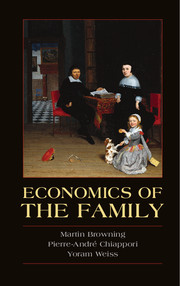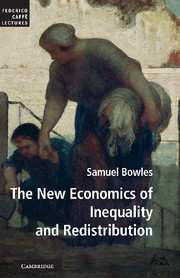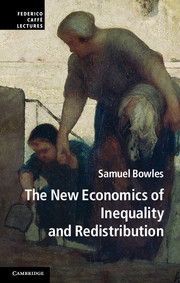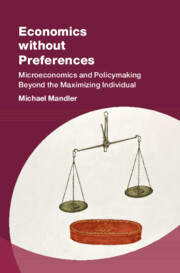Economics of the Family
The family is a complex decision unit in which partners with potentially different objectives make consumption, work, and fertility decisions. Couples marry and divorce partly based on their ability to coordinate these activities, which in turn depends on how well they are matched. This book provides a comprehensive, modern, and self-contained account of the research in the growing area of family economics. The first half of the book develops several alternative models of family decision making. Particular attention is paid to the collective model and its testable implications. The second half discusses household formation and dissolution and who marries whom. Matching models with and without frictions are analyzed and the important role of within-family transfers is explained. The implications for marriage, divorce, and fertility are discussed. The book is intended for graduate students in economics and for researchers in other fields interested in the economic approach to the family.
- Comprehensive and accessible to multiple social sciences disciplines
- Takes the reader to the frontiers of the current literature on family economics in one self-contained text
- Emphasizes the link between macro outcomes and individual outcomes
Reviews & endorsements
"This very fine book by three prominent economists - Browning at Oxford, Chiappori at Columbia, and Weiss at Tel Aviv - will provide an invaluable tool not only to population economists but also to labour economists (especially those with an interest in explaining the gender gap) and all economists with an interest in inequality and household consumption (which is to say, almost all economists)."
Canadian Studies in Population
Product details
June 2014Hardback
9780521791595
510 pages
229 × 152 × 32 mm
0.92kg
86 b/w illus. 32 tables
Available
Table of Contents
- Introduction
- Part I. Models of Household Behavior:
- 1. Facts
- 2. The gains from marriage
- 3. Preferences and decision making
- 4. The collective model: a formal analysis
- 5. Empirical issues for the collective model
- 6. Uncertainty and dynamics in the collective model
- Part II. Equilibrium Models of the Marriage Market:
- 7. Matching on the marriage market: theory
- 8. Sharing the gains from marriage
- 9. Investment in schooling and the marriage market
- 10. An equilibrium model of marriage, fertility, and divorce
- 11. Children and family structure.










